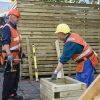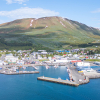
Working life



Sustainable working-life for ageing populations in the Nordic and Baltic region: research insights and policy recommendations
21/11/2025
Vilnius University, Faculty of Philosophy, Universiteto St. 3, Room 201, Lithuania
Event A socially sustainable Nordic region Working life Register



Pagination
Sign up to our newsletter
Get our newsletter to receive news and updates on NordForsk research areas and projects.